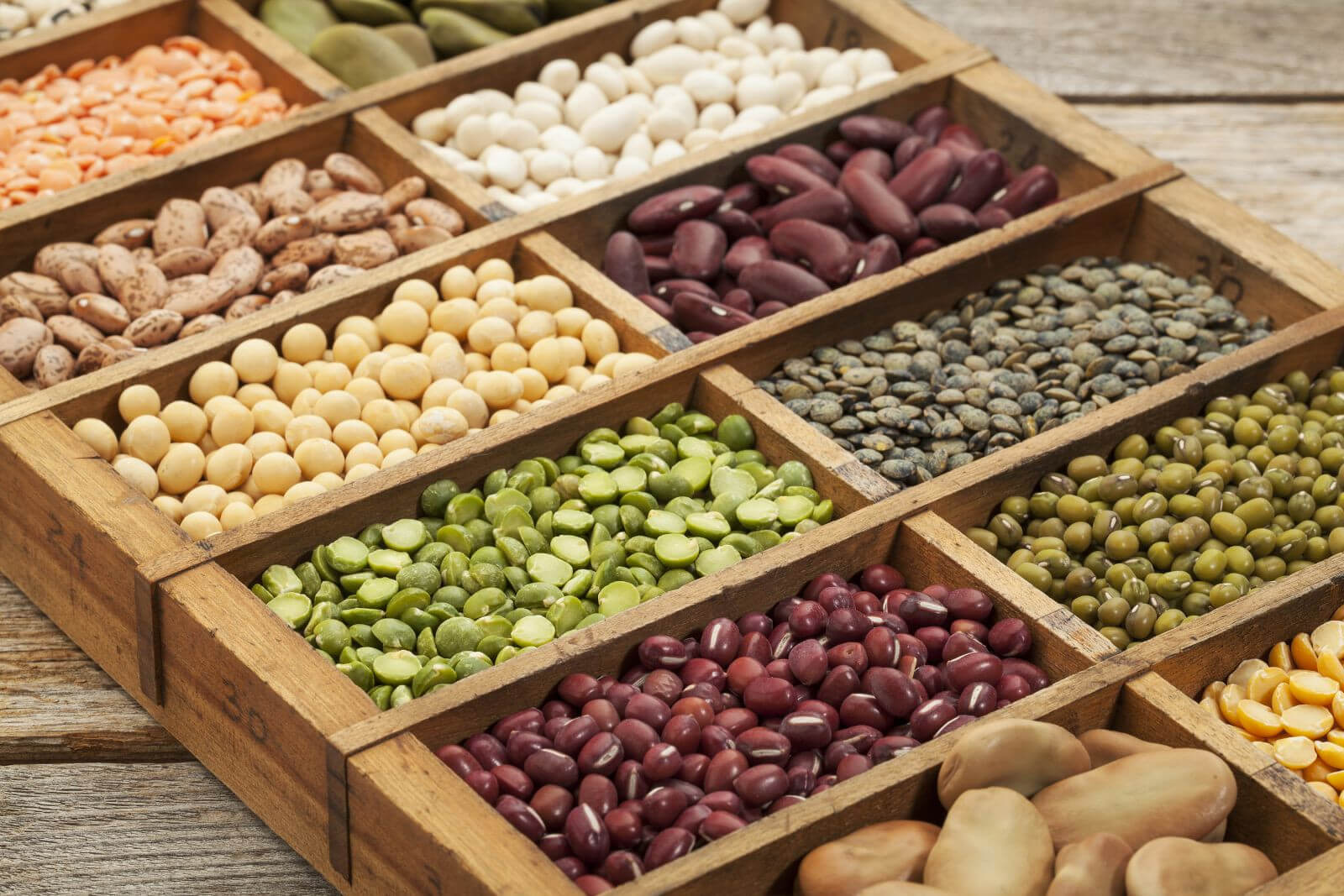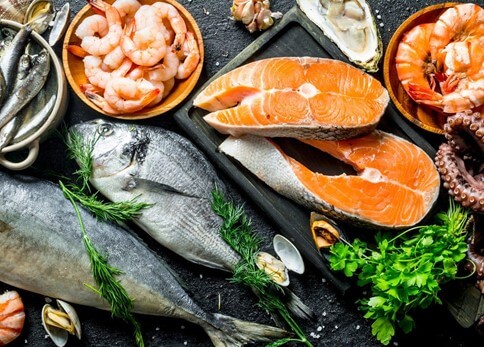In the diverse world of nutrition, understanding the different types of food is essential for maintaining a balanced and healthy diet.
Food is more than just sustenance; it is the source of vital nutrients necessary for our body’s growth, development, and overall well-being.
The categorization of food into types such as vegetables, fruits, grains, legumes, nuts, seeds, meat and poultry, fish and seafood, dairy products, and eggs provides a framework for understanding the unique benefits and roles each plays in our diet.
This list of food categories comes from various sources, including plants, animals, and birds, each contributing uniquely to our nutritional needs.
From plant-based foods like vegetables, fruits, and grains that offer an abundance of vitamins, minerals, and fiber to animal-based foods like meat, dairy, and eggs, which are rich in protein and essential fats.
Each category plays a crucial role in a well-rounded diet.
This article delves into the significance of these food categories, highlighting their importance and how they contribute to a nutritious and varied diet.
Different List of Food Categories
What we eat are different types of food, which are further categorized into different categories.
These categories are as follows:
- Vegetables
- Fruits
- Grains, legumes, nuts, and seeds
- Meat and Poultry
- Fish and Seafood
- Dairy foods
- Eggs
We obtain food from various plants and animals. Animals, birds, seafood, and some plants provide protein, which is the building block of cells.
Apart from this, we consume milk and other dairy products.
There are various plant-based foods that we consume almost every day. For example: – peas, beans, pulses, nuts, and grains.
Various grains are converted into flour to make pastries, cookies, bread, pasta, and many more food varieties. Fruits and vegetables are plant-based food.
Fruits and vegetables are nutritious for us and are essential in many cuisines worldwide.
Even stems and leaves of some plants are used in many dishes and are sometimes used raw.
This implies what people eat worldwide comprises the same vegetables, plants, and animals. But changes are the method to use them.
Further, we will see in detail all the seven food categories, why they are important, and how we get them.
Various List of Food Categories and Their Significance
1. Vegetables

Vegetables are a crucial type among various types of food, offering an array of nutrients essential for maintaining good health.
They are edible plant parts, including roots, stems, leaves, and flowers.
Vegetables are a powerhouse of vitamins, minerals, dietary fiber, and antioxidants while being low in calories, fats, and carbohydrates.
The inclusion of vegetables in the diet significantly reduces the risk of chronic diseases such as cancer, stroke, and cardiovascular ailments.
Each vegetable category, such as root, bulb, stem, leafy, and podded vegetables, brings its unique set of nutrients.
For instance, root vegetables like carrots and sweet potatoes are rich in beta-carotene, while leafy greens like spinach and kale are excellent sources of iron and folate.
The high fiber content in vegetables aids in digestion and can help manage body weight.
Regular consumption of a diverse range of vegetables ensures a well-rounded intake of essential nutrients, contributing to overall health and well-being.
2. Fruits

Fruits are an indispensable part of the variety of foods we consume, known for their delightful taste and nutritional benefits.
As the seed-bearing structures in flowering plants, fruits are rich in essential vitamins, minerals, and antioxidants.
Regular consumption of fruits is linked to reduced risks of various health conditions, including heart diseases, strokes, and certain types of cancers.
They are an excellent source of dietary fiber, which aids in digestion and helps maintain a healthy gut. Moreover, exploring techniques like using food thickener can be particularly beneficial to maximize their nutritional value and digestive benefits.
Fruits like grapefruit, berries, apples, and oranges are not only low in calories but also high in nutrients like vitamin C, potassium, and phytochemicals that support immune health and skin vitality.
The fruit’s potassium is vital in maintaining healthy blood pressure and kidney function.
Moreover, fruits are versatile in culinary use, featuring everything from fresh salads to desserts, juices, and smoothies.
Including various fruits in the diet ensures a wide range of antioxidants and phytonutrients essential for combating oxidative stress and supporting overall health.
3. Grains, Legumes, Nuts, and Seeds

Grains, legumes, nuts, and seeds are significant food items that form the foundation of various diets worldwide.
Grains like wheat, rice, and corn are primary sources of carbohydrates, providing energy to the body.
Whole grains, in particular, are rich in dietary fiber, vitamins, and minerals, and their inclusion in the diet has been linked to reduced risks of chronic diseases like diabetes and heart conditions.
Legumes, including beans, lentils, and peas, are notable for their high protein content, making them a vital component of vegetarian and vegan diets.
They are also excellent sources of B vitamins, iron, and other minerals.
Nuts and seeds, such as almonds, flaxseeds, and chia seeds, are dense in nutrients, providing healthy fats, proteins, vitamins, and minerals.
They are known for their heart-healthy fats and ability to improve cholesterol levels.
A diet’s combination of grains, legumes, nuts, and seeds contributes significantly to nutrition diversity, offering a balance of essential macronutrients and micronutrients vital for maintaining good health and preventing nutritional deficiencies.
4. Meat and Poultry

Meat and poultry are key types of food in many diets, known for their high-quality protein content and richness in various essential nutrients.
They are primary sources of complete proteins, containing all nine essential amino acids necessary for the body’s growth and repair.
Meat and poultry are also rich in B vitamins, particularly vitamin B12, which is not readily available in plant-based foods.
These food types provide important minerals like iron, crucial for transporting oxygen in the blood, and zinc, which supports immune function.
Regular consumption of lean meat and poultry can contribute to muscle growth and strength, making them an important part of a balanced diet, especially for athletes and those engaged in physical activities.
However, it is essential to consume them in moderation, as excessive intake can lead to health issues like increased cholesterol levels and heart disease.
Including a variety of meats, such as chicken, turkey, beef, and lamb, ensures a well-rounded intake of these essential nutrients.
5. Fish and Seafood

Fish and seafood stand out among different types of food due to their unique nutritional profile.
They are excellent sources of high-quality protein and are particularly renowned for their omega-3 fatty acids, which are essential for heart health and cognitive function.
Regular consumption of fish and seafood is associated with reduced risk of heart disease and is beneficial for brain health.
Fish like salmon, mackerel, and sardines, as well as shellfish like shrimp and oysters, provide vital nutrients, including iodine, selenium, and vitamin D, which are not commonly found in other food types.
These nutrients play critical roles in thyroid function, antioxidant defense, and bone health.
Including fish and seafood in the diet is also linked to improved mental health and decreased risk of chronic diseases.
Moreover, they are versatile in culinary uses, fitting well into various cuisines and cooking styles, from grilling and baking to stir-frying and steaming.
6. Dairy Products

Dairy products form an essential list of food categories among various types of food, primarily derived from the milk of mammals like cows, goats, and sheep.
They include milk, cheese, yogurt, butter, and ice cream.
Dairy products are highly nutritious, providing a significant source of calcium, which is crucial for bone and teeth health.
They are also rich in protein, vitamins (especially vitamin D and B12), and minerals such as potassium and phosphorus.
The consumption of dairy products can contribute to muscle development, help maintain healthy blood pressure, and support the overall growth and maintenance of the human body.
Probiotic-rich dairy products, like certain types of yogurt, are beneficial for gut health, aiding digestion and maintaining healthy gut flora.
However, it’s important to choose low-fat or fat-free dairy options to manage calorie intake and prevent the risk of cardiovascular diseases.
While dairy products are beneficial, they should be consumed in moderation, especially by those who have lactose intolerance or allergies to milk proteins.
7. Eggs


